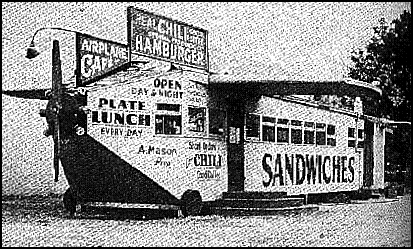
The Unwanted Sound of
Everything We Want
A Book about Noise
Garret Keizer
(PublicAffairs)

According to WHO, "Transportation noise is the main source of environmental noise pollution, including road traffic, rail traffic, and air traffic." Over two thousand years ago, Julius Caesar outlawed wheeled vehicles from operating within Rome from "sunrise to one hour before dusk." The biggest noise-bang of all time, it is supposed, was the explosion of Krakatowa, at 185 decibels, in mid-June of the year 1883.The number two noisemaker of them all is the song of the humpback whale. Rock concerts come in at #6, with The Who --- not the World Health Organization [see above] --- being dubbed the most oppressive of them all. "No touch torture" is a system of blasting people with heavy-metal music, "a tactic used against Panamanian president Manuel Noriega in 1989" and by all juveniles subsequently against anyone over the age of forty. The musicians of choice to upset Noriega were Eminem and Dr. Dre, but as early as 1965 Bob Dylan went electric in Newport and was heartily booed.
Wife beating was "prohibited after 10:00 P.M. in England in the early 16th century." Oscar Wilde complained in 1883 that "America is the noisiest country that ever existed." Nine- to ten-year-old children living around airports in London, Madrid, and Amsterdam showed lower levels of "reading comprehension and recognition memory."
One of the most raucous places in the United States might be my bedroom because of our neighbor's three mutts that sing to the moon (and me) all night long. Another noise-central is your common jail. As an aside, author Keizer says
Incarceration may be our most ambitious social program since the New Deal, a way of housing our poorest people of color and employing our poorest whites.
Unwanted Sound is absolutely crawling with facts about noise, wonderful and dreadful, horrific and beautiful, grim and good. Like all one-topic books, it can drag, at times humming along, at times screeching obsessively. When I was a kid, people didn't make all that much noise about noise, perhaps because there wasn't that much of it hanging around ... at least not out there in the suburbs of Avondale (Avondale!) where I grew up.
Lord Cherwell, by the way (Churchill's science advisor), said that the reason the English practiced bombing indiscriminately during WWII was because "dehousing (that's what they called it) was a real morale killer. "People seem to mind it more than having their friends and relatives killed," he reported.

--- C. A. Amantea
Daughters of Zion
A Family's Conversion to Polygamy
Kim Taylor
(Rogue Hill)If you ever needed a reason not to enter into polygamy --- a hundred dishes in the sink, the humdrum argument squared, diapers to the third power --- Daughters of Zion should do the trick."It's called polygamy or plural marriage," Kim explains to one of her friends. "It's part of our religion. It's where a man can have more than one wife." Her friend responds, tartly but wisely, "Can a woman marry more than one husband, too?"
She thus comes up with a simple solution to this multi-faceted problem of love and marriage, which, as Frank Sinatra would have it, "Go together like a horse and carriage."
Why should the women be the ones to put up with all that marital competition? Inversion is the answer.
Let a woman pick out a half-dozen or so husbands: make them sweep the floor, put nappies on the babies, clean up after the lady of the house, scrub the floors. It's simple: get a woman with a half-dozen or so dogsbodies.
A simple solution to an otherwise intractable problem. Mormonism for the little lady. She becomes the queen of the hive; these guys get to be her slaves.
--- Lolita Lark
La's Orchestra
Saves the World
A Novel
Alexander McCall Smith
(Pantheon)Her name was "Lavender" but they call her "La" ("Lav wouldn't do" explains one of her friends). It's all very English.And Smith captures the moment in an English kind of way: down there in Suffolk, at the beginning of WWII.
La goes to volunteer for the "Women's Land Army." She tells the Major that she's worried about Hitler, and the Germans; they "seem so strong. They have so many more tanks and planes than we do.
The major looked at La pityingly. "I wouldn't worry unduly about these things, Mrs. Stone. We have the General Staff to do our worry. As Voltaire said, Il faut cultiver son jardin. 'One must cultivate one's garden.'"
Perfect, perfect. The stiff major, quoting Voltaire. "I wouldn't worry unduly..." Unduly, he says. Very English.
But La wants to do something important. She's concerned. "The ease with which the Germans have overtaken Poland..." She just graduated from Cambridge and she wants to help. The major tells her she would be better off in her garden, growing beans, minding the chickens.
Ultimately, a Pole comes along, and she falls in love with him, but she thinks he may be spying on her and the nearby airfield, there where the RAF is fighting the Battle of Britain. She reports him; they take him in; question him. And then, O Yawn, La's Orchestra does fiddle along, funebre, with occasional moments of pastorale, frequent diminuendo, but certainly never obbligato.
§ § § Some years back, we reviewed one of Alexander McCall Smith's many "#1 Ladies Detective Agency" series, The Kalahari Typing School For Men.
Mma. Ramotswe, head of the detective agency, fiancée to Mr. J. L. B. Matekoni, owner of the Tlokweng Road Speedy Motors, had gone off to seek a family who had suffered a grievous loss of a grand radio some twenty years ago.
"If you think," we concluded, "that this is just a novel about not-so-serious goings-on in Botswana, you are probably right. In fact, if I didn't know any better, I would think it was a children's book (ages 12 - 17). Long repetitions are the mode. Mr. J. L. B. Matekoni is never referred to by any other name than 'Mr. J. L. B. Matekoni,' and his company is never referred to as 'the auto repair shop' but rather, the 'Tlokweng Road Speedy Motors.'"
Smith is thus master of the picayune. Or maybe a master of great picayune beginnings. Some novelists know how to kick things off; others how to end them. La's Orchestra starts like a house afire, but turns glum and dull and overlong ... like the war it tells of. I think we are better off hunting errant radios in the company of the #1 Ladies Detective Agency.
--- Richard SaturdayFirst Light:
Five Photographers Explore
Yosemite's Wilderness
Charles Cramer, et. al.
(Heyday Books)It's gorgeous, exquisite colors, large type, a photographer's dream. Merced Lake, Nevada Fall, the back-country of Yosemite. They say that the five photographers worked five years on this project. There are over a hundred shots: stately trees, graceful shadows in the water, rocks and crags, The Wild. Not a human in the bunch ... except for the sepia photographs of the photographers, together and singly.Photographers as you may know, are a crabby lot, and I guess the miracle is that they got these guys to work together for so long to produce this one --- without shooting each other. Except with their cameras. Lovely. It does remind us of what Dubravka Ulgresic wrote in The Museum of Unconditional Surrender (from New Directions):
I never liked the whole business of taking photographs. I found tourists, armed with cameras, objectionable, I found looking through other people's albums or watching their slides a torment.
During one trip abroad I bought a cheap automatic camera, and once the object was already there I shot several films. After some time I looked through the photographs and established that the scenes I had photographed were all I remembered of that journey. I tried to remember something else, but my memories stayed tenaciously fixed on the contents of the photographs.
I wondered what I would have remembered and how much if I had not taken any pictures . . .
When she went to my grandmother's funeral, my mother came back with a bundle of our family photographs which she had sent to my grandmother over the years. Among them was one of me, taken on the beach. I could have been about thirteen. On the back of the picture I discovered a text in Bulganan written in my distant cousin's unskilled hand: This is me, taken on the beach, in my new swimsuit. Under the text was her equally clumsy signature.Now that picture is in my possession. Why my distant cousin did that, I shall never know. I am puzzled by that detail, sometimes I wonder whether it could have been me who did it, that, in fact, it's hard to prove that I didn't do it, because the picture is quite definitely of me, and then I am shaken by the nightmare thought that I might have signed my own photograph in her language, alphabet and handwriting and her name.
--- Richard Saturday